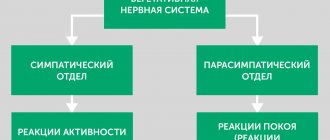04/28/20205 minutes read 540
Anyone who has ever worked has at some point felt the pressure of work-related stress. Unfortunately, there is no type of activity that would not entail any stressful consequences, even if you love what you do, not to mention if you are just “working” the allotted time. The simplest and most understandable stress factor is the urgency or complexity of a particular work commitment. Annual report, difficult negotiations, difficult inspections by regulatory authorities. But when stress extends beyond individual work tasks and begins to accompany you every day, it becomes chronic, overwhelming, and harmful to both your physical and emotional health.
We recommend taking an empathy test!
Unfortunately, such long-term stress is all too common. In fact, an annual survey of working citizens consistently shows that work is a significant source of stress for most. You are not always able to avoid stressors that arise in the profession. However, you can take some steps to manage the causes of burnout.
Constant stress at work. Sources of stress
Certain factors tend to go hand in hand with work-related stress.
Here are some common occupational stressors:
- Low pay.
- Excessive load.
- Little opportunity for growth or professional advancement.
- Activities that are not attractive or challenging.
- Lack of social support.
- Lack of sufficient decision-making authority and professional independence.
- Conflicting job requirements or unclear performance expectations.
All this often develops into full-fledged chronic stress.
Psychologists most often identify the following factors of professional stress:
- The employee’s working day is associated with high temporary overload, irregular working hours;
- working conditions do not meet safety and physical comfort requirements;
- an employee works in a situation of time shortage, there are many different tasks, but there is not enough time to implement them, one thing overlaps with another, all matters are urgent;
- the employee is forced to make decisions independently.
- the employee is not sufficiently informed about his professional responsibilities and the powers of his colleagues and superiors;
- high responsibility for other people and for material values;
- low degree of influence on decision making in the organization;
- difficult relationships with management, with subordinates, with colleagues;
- intrigue, manipulation pressure from colleagues, managers, subordinates
Consequences of uncontrolled stress
Unfortunately, work-related stress does not disappear when you return home after a day of work. Our psyche does not separate the professional from the personal and we drag work stress into our daily lives. Stress at work begins to affect your overall well-being, health, and relationships with loved ones. A stressful environment contributes to problems such as headaches, abdominal and lower back pain, sleep disturbances, short temper and difficulty concentrating. The effects of chronic stress can lead to anxiety, insomnia, high blood pressure and a weakened immune system. In the future, worsening, stress becomes the cause of truly serious diseases, such as depression, obesity, and heart disease. Unhealthy ways of reducing stress, such as overeating, eating unhealthy foods, smoking, or drug and alcohol abuse, contribute to the worsening of these problems. And all this is done to us by the stress associated with professional activity.
How stress manifests itself
Stress can be defined by a number of manifestations - psychological, physiological or behavioral. Any personnel management training introduces you to the signs of an unhealthy team and the stressful state of individual employees; now we will consider only the most common ones.
Physiological signs of stress . Pressure surges, weight changes, pain syndrome. All this can happen to a person due to a long-term discrepancy between expectations and results, accompanied by constant emotional tension.
Psychological signs of stress . Apathy, anxiety, decreased self-criticism, guilt, self-doubt, phobias, poor concentration, predominance of negativity. This can happen due to “burnout”: then a first-class, energetic specialist literally loses his capacity, and a gentle colleague suddenly turns into a vengeful despot. Many tend to regard such transformations as a manifestation of the “true face”, but depression caused by conditions can manifest itself this way. Such breakdowns are especially typical for doctors, social workers, and teachers.
Behavioral signs of stress . Increased conflict, absenteeism, a large number of mistakes compared to the usual level of quality of a particular employee, sudden attacks of anger, workaholism unusual for a particular person, antisocial behavior.
Stress at work. How to cope?
Monitor your occupational stressors. Start by keeping an activity journal and completing it over the course of a week or two to determine which situations create the most stress and how you respond to them. Write down your thoughts, feelings and information about the professional environment, describe the people and circumstances involved, the physical environment and how you responded to it.
What consequences of your professional activity happened to you this week?
- Did you have to raise your voice?
- Did they raise their voice at you? Colleagues? The authorities? clients?
- Did you have to eat away your stress with unhealthy food and sweets? Didn't have time for a normal snack?
- Let's go for a walk to somehow distract ourselves and not get frustrated at work?
Keeping records of your professional activities will help you find patterns among your stressors. Try to develop healthy reactions. Instead of trying to eat fast food or relieve stress with a bottle of beer in the evening, do your best to make healthy choices when you feel stress rising in your activities.
Physical exercise
is a great way to minimize or completely eliminate the effects of professional stress. Yoga can be a great choice, and any form of physical activity is beneficial, even a simple daily walk.
Also make time for hobbies and favorite activities.
Whether it's reading books, attending concerts, exhibitions, or playing with your family, be sure to set aside time for activities that bring you pleasure.
Sleep
also plays a huge role in restoring mental well-being. Create healthy sleep habits: limit caffeine intake later in the day; Minimize mental stimulants such as computers, phones, and TV before bedtime. Set limits on your phone - in our world it's too easy to be connected 24/7. Artificially set yourself a limit and boundaries between your professional and personal life. Let no one be able to disturb you at the specific time you set. And don’t check your professional email, phone, instant messengers, etc. at this time.
Of course, for different people this border lies in different places; someone can leave work at 18.00, turn off the phone and forget about professional activities until 9.00 tomorrow. Someone is forced to be on duty even at 2 am. But, still, try, as much as possible, to draw a clear boundary between the two areas, only this can reduce the potential conflict between work and personal life and reduce the stress accompanying it.
Take time to recharge. To avoid the negative effects of chronic fatigue and burnout, we need time to recover and return to our pre-stress level of functioning.
This recovery process requires “switching off,” that is, periods of time when you are not engaged in occupation-related activities or thinking about work. That's why it's important that you unplug from time to time, and that it suits your needs and preferences. Don't let your days off go to waste. Whenever possible, take time off to relax and erase the effects of stress, so that when you return to work, you'll feel refreshed and ready to perform at your best. If you're unable to take a short vacation, get some quick relief by turning off your smartphone and focusing your attention on non-work activities for a while. Learn to relax. Techniques such as meditation, deep breathing exercises and mindfulness
(a state in which you actively observe current experiences and thoughts without judging them) can help you get rid of the causes of stress, even in the absence of a long-term reset.
Start with a few minutes a day to focus on simple activities such as: focusing on your breathing, walking, enjoying food, communicating with your children, family. The ability to focus single-mindedly on one activity without distraction will strengthen with practice, and you will find that you can apply it to many different aspects of your life.
Stress in the workplace and its impact on employees
This article is devoted to the issues of stress in the workplace and its impact on the employee. The factors causing stress in the workplace and the emergence of professional burnout in modern employees, as well as their consequences, are considered.
Key words: professional burnout, stress, burnout syndrome, employee, prerequisites and consequences, stress management.
Introduction. In the 21st century, in the century of highly progressive and rapidly developing technologies, a fast and busy pace of life, stress has become a daily “companion” of most workers.
The term "stress" comes from the English. “Stress”, which means pressure, tension, load. Stress was first described by Hans Hugo Bruno Selye, a Canadian pathologist and endocrinologist, in 1936, defining it as a nonspecific reaction of the body to external influences. [3]
Stress wakes up with a person in the morning, along with an early alarm clock, while coffee is brewing, and in public transport, stress is nearby when a person is driving, on the way to the office, while running up the stairs to the office or riding in a tightly packed elevator, stress surrounds in everywhere in the modern world.
Where does the average person spend most of his life? Of course, at work. Of course, there are people who are absolutely happy in their work, they do not complain about the large number of work responsibilities and they do not have to stay overtime. But unfortunately, in reality there are very few such lucky ones. According to research by scientists, there are only about 13% of people in the world who are absolutely satisfied with their work and are happy in it. [1]
As of 2021, the world's population is 7,817,410,000 people, and only about 13% of them are happy in their jobs, that's 1,016,263,300 people.
The reasons why stress occurs at work are varied. An employee's dissatisfaction with his professional activities, conflicts in the work team, high workloads, leadership style, dissatisfaction with salary, lack of career prospects - all this can cause professional stress. [2]
The American Institute of Stress, having surveyed American job seekers, came to the conclusion that most often - in 46% of cases - stress in the workplace is caused by high workload, long working hours and lack of proper rest, namely the dissonance between those put forward in relation to the employee's requirements and internal resources; in 28% of cases - relationships in a team, i.e. psycho-emotional or psychosocial factors, and in 20% of cases - an imbalance between work and personal life. [6]
It is worth noting that the relevance of this topic is reflected in the light of recent events in the country and in the world; the whole of 2021 is a complete stress. The pandemic has made adjustments to the work of millions of people around the world. Many for the first time mastered remote work, new formats of interaction with colleagues and management, new gadgets, and many were completely fired and were subsequently forced to master new areas and areas of work.
For those who still remained at their workplace and switched to a “remote format” of work, this is a certain stress. Perhaps at first it was interesting and somewhat comfortable - working at home, where it’s convenient, you can drink coffee whenever you want, wear comfortable clothes and sit at a laptop with your favorite cat on your lap, but as time passed, for many employees, all the comfort began to overshadow such moments such as constant distractions (family members, pets and household responsibilities, and the most common “lying down on a comfortable sofa or bed for a couple of minutes”), lack of live communication with colleagues, with your boss, and often the office is more technically equipped for work.
Therefore, whether you work in the office, at home, from a personal car or from anywhere in the world, you will experience stress one way or another. There will always be certain factors that will cause tension and provoke a stressful state.
The development of a stressful state in an employee occurs gradually and in several stages.
The first stage is the stage of anxiety or excitement, when the employee is faced with factors that cause discomfort and cause disturbances. At the same time, the body is forced to use all its possible protective mechanisms and resources, and the person’s behavior begins to change.
Stressful factors and phenomena can lead to the fact that the state and behavior of an employee changes dramatically, for example, a calm and reserved person begins to behave aggressively, hot-tempered, irritated and respond rudely. And an employee who has always been sociable and active, on the contrary, closes in on himself, experiences everything that happens “inside”, and stops communicating with colleagues. At the first stage, there is a loss of self-control and deformation of communication; a state of excitement and anxiety leads to the fact that the employee cannot consciously control his own behavior. The duration of the first stage of professional stress is quite individual for each person and largely depends on his personal qualities. For example, calm and patient people can accumulate internal tension for a long time, and some will respond to the stress factor instantly.
The second stage is adaptation to stressful conditions. The employee tries to resist and adapt to stress. This stage is considered especially stressful: the employee may lose control over his own actions, since stress has a destructive effect on his psyche; in more severe cases, even clouding of consciousness is noted. That is why, in a stressful situation, people often commit actions that are unusual for themselves - they can rudely answer questions and requests from colleagues and managers, submit a letter of resignation, etc. Many subsequently admit that they themselves do not understand how they could commit such actions, and regret it. This state is called “affect”.
If a stressful situation continues for quite a long time, then the third stage begins - this is the depletion of the body’s reserves. In a situation where the influence of the stress factor has not been eliminated, and the psychological and physical resources of the body have already been exhausted, the employee is no longer able to resist the situation and adapt to it. Further exposure to unfavorable circumstances and factors can lead to a chronic stressful state. A long-lasting stage of exhaustion often leads to various types of diseases. Also, the result of ongoing stress can be professional “burnout” of an employee. [4]
Today, the set of reasons that provoke stress among modern company employees is quite wide. Thus, we can state the fact that every modern individual, to one degree or another, experiences stressful situations in the workplace, from minor to serious, which ultimately lead to a number of further manifestations.
In this regard, not only the importance of developing and regularly implementing measures to eliminate stress among employees and its prevention in the organization is growing, but also assessing the level of stress resistance of candidates during an interview.
Stress resistance is an individual’s ability to maintain self-control, the ability to quickly adapt to the situation, external manifestations and self-destruct the manifestation of stress. A candidate’s stress tolerance for a position in a company can be assessed using a whole range of methods: this includes direct observation of the candidate by an expert, a conversation with a highly qualified psychologist, a candidate’s self-assessment of his level of stress resistance, and a number of psychological test methods with further interpretation by a specialist, etc. [ 5]
Stress interview has a special place in identifying stress resistance. A stress interview (or stress interview) is a conversation with a candidate using a set of stressful questions, as well as psychological pressure in order to take the individual out of his own “comfort zone” and other stress-provoking tools during the conversation.
Stress interview tools include:
— non-standard and uncomfortable conditions in which the candidate is located during the conversation (inconvenient place, stuffy or, conversely, too cold room, extraneous noise, etc.);
- aggressiveness of the interviewer;
- the interviewer is late for a long time - a long wait for the start of the interview;
— presence of strangers during the interview;
- tactless and provocative questions, etc.
It becomes clear that even the most confident people, who were not warned about conducting this kind of interview, may experience some discomfort, which will result in stress. However, there are opinions that a stress-resistant person will maintain composure in any non-standard situation, behave calmly and worthy of the current situation, and also remain friendly to the interviewer.
But nevertheless, when resorting to the use of stress interviews, it is important to professionally train HR managers - stress interview technologies; use stress interviews only at certain points during the interview with the candidate; avoid questions that offend the honor and dignity of the candidate; move away from the use of stress interviews for the company’s top management, etc.
Methods for eliminating organizational stress are varied in modern companies. Among them, it is worth highlighting: the work of an in-house or external corporate psychologist, increasing the corporate spirit in the team in order to reduce the level of conflict and with the help of corporate events, creating comfortable working conditions, promoting sports and an active, healthy lifestyle, proper nutrition in the company, constant feedback communication with the manager, regular monitoring by oral or written (including anonymous) survey of employees about their anxiety and stress, and the reasons that cause them, and much more.
Thus, professional stress is no longer a problem only for the employee under the influence of stress factors, but also for the entire organization as a whole.
It becomes clear that the “carriers” of stress are not able to fully devote themselves to work. As a consequence, there is a decrease in labor productivity, the quality of work performed, or services provided, and an increase in staff turnover in the company.
First of all, managers, HR service specialists and organizational psychologists should think about the impact of stress on the organization’s personnel and its consequences. Since prevention is always easier than treatment, that is, correcting the consequences that led to an already critical situation.
Literature:
- How much time do we spend at work? Arguments and Facts. URL: https://spb.aif.ru/society/people/skolko_vremeni_my_tratim_na_rabotu (Access date: 11/15/2020)
- Stress at work, stress from work. HR League community of personnel officers and management specialists URL: https://hrliga.com/index.php?module=news&op=view&id=11907 (Access date: 11/15/2020)
- Stress at work, stress from work. HR portal URL: https://hr-portal.ru/article/stress-na-rabote-stress-ot-raboty (Access date: 11/19/2020)
- Vodopyanova N. E. Psychodiagnostics of stress. Workshop stress management. - St. Petersburg: Peter, 2009
- Kamenyukin A. G. Kovpak D. V. Stress management, 3rd ed. - St. Petersburg: Peter, 2012
- Workplace stress: what causes it and how to deal with it? Businessnetwork URL: https://businessnetwork.lv/vvod/rost/stress-darbavieta-52797 (Access date: 11/22/2020)
Find professional support
If you continue to feel depressed due to stress in your professional life, seek counseling to help you better manage your stress and change unhealthy behavior. At the same time, you do not need to add additional sources of stress to yourself, such as searching for a psychologist, traveling time, waiting for an appointment, and changing a professional if for some reason he did not suit you. At the moment, you have access to a convenient online consultation with a psychologist on the Helppoint online service. Here you will be matched with a suitable specialist for your request, in this case, one who has experience working with professional burnout. You will be able to communicate with him anytime and anywhere, even at work, between performing your professional duties using online chat or video consultations available on any device.
Don’t wait until professional burnout becomes irreversible, start using all the resources available to you to combat it at an early stage, and live a full, happy life in harmony with yourself and your work activities.
Author: Editorial staff of the Help-Point.net portal
Start working with a psychologist right now
Start a consultation
Tags: emotional burnout consultation with a psychologist cost of consultation with a psychologist psychologist online what to do and how to cope with constant stress at work test for emotional burnout
Share
Comments
- Comments
Loading comments...
Previous article
Anxiety in children aged 5 to 7 and 9 years and younger
Next article
Stress in certain professions
The most nervous and emotionally costly professions are those that involve working with people; they are associated with training, education, service, and leadership. Let's consider the tensions in some professions of this type.
Teacher and educator
Working with children is associated with daily nervous tension, which reduces the teacher’s ability to work.
The main stress factors in the work of a teacher:
- Monotonous repetition of the same material.
- The need to follow a clear program, which does not always satisfy the teacher.
- Additional workload in the form of checking notebooks and keeping journals.
- Feeling of undervaluation of work by the state.
- Complaints from student parents.
- The behavior of students, their conflicts with each other.
- Lack of free time.
Educators and primary school teachers experience stress mainly due to increased responsibility for the lives and health of children.
Secondary school teachers have to teach classes to different age groups, the children of which have different social status.
The need to change from one class to another, move from more complex material to easier material and vice versa, creates an additional burden. Constant work stress reduces empathy levels. To relieve emotional stress, teachers specially developed a set of simple physical exercises. You can do them at any time. Here are simple exercises to relieve stress:
- Tighten your toes for 5 seconds, relax.
- Tighten the calf muscle of your left leg, relax, then relax your right leg.
- Tighten your knees, relax.
- Tighten your thighs and buttocks, relax.
- Tighten your abdominal muscles, relax. Inflate your stomach, pull it in.
- Raise your shoulders slightly, straighten them back, relax.
- Tilt your head left and right, look forward.
- Take a deep breath, exhale slowly.
Stress and performance are incompatible concepts. Therefore, psychologists give recommendations to teachers: never yell at students. This harms not only the children, but also the teacher; his strength is quickly exhausted.
If the situation gets out of control, it is better to simply leave the classroom for 2-3 minutes and calm down.
The ability to abstract is very important for a teacher. It will help you stay calm in a stressful situation. It will not be possible to always keep the class under control, help, and solve the problems of every student. The main task is to present the material on the program in an accessible manner and to provide assistance to those who ask for it.
The ability to abstraction is important in the work of a teacher.
Lawyer
In addition to knowledge of the laws, a lawyer must have high stress tolerance. This is the only way to maintain mental and physical health for many years and prevent work stress.
Psychological stress in the activities of lawyers arises due to:
- high competition;
- customer requirements;
- changes in laws and regulations;
- the need to go against one's moral and ethical principles.
For prosecutors and judges, power puts a serious strain on the psyche. Many experience personality deformation and begin to abuse their official position. Having to constantly deal with people at their worst can, over time, lead to unmotivated harm to others. Many lawyers claim that sports training and creative activities in their free time help them overcome professional stress. You can also reduce your workload by planning your workday.
Police officer
Service in the internal affairs bodies is always accompanied by increased nervous stress. Only citizens with a high level of legal awareness, psychological stability and physical performance can cope with responsibilities normally. Causes of stress among police officers:
- Increased responsibility for the results of actions and their consequences.
- Conflict between duty, obligation and moral character.
- Aggressive reaction of citizens to actions by police officers.
- Negative moral impact of criminals.
- Constant readiness for extreme situations.
- The need to simultaneously predict several scenarios.
After long-term work with the criminal world, obsessive thoughts, paranoid states may arise, and an exaggerated sense of the right to violence may appear.
To keep your employees sane, you need to give them time to adjust after each task. A psychologist must work in the department.
Periodically it is necessary to improve the qualifications of employees, their general moral and cultural level. These are the main ways to deal with stress in police departments.
Emergency Ministry worker
Working in the Ministry of Emergency Situations always involves risk to one’s own life and responsibility for the life and health of other people. The main factors of nervous tension:
- anticipation of an extreme situation;
- fear of error.
There are mechanisms for the accumulation of professional stress: chronic and traumatic. Chronic is associated with the strenuous nature of daily activities. Traumatic work stress for emergency workers occurs when they experience a situation that is outside the scope of their normal experience.
Elimination of natural disasters, fires, saving people from death is the specialization of the Ministry of Emergency Situations, but each new situation is different from the previous one, it is difficult to predict anything. This is what causes professional stress.
Entire scientific institutes are engaged in the prevention of personality deformation and emotional burnout in the Ministry of Emergency Situations. They develop and implement new modern approaches to the analysis of professional stress. Employees receive training on self-control and emergency relaxation skills.
Stages of stress
The first stage of stress - the alarm stage, or the anxiety stage - is quite loved and respected in the business environment. With it, all the adaptive resources of the body are mobilized: attentiveness to the task, the so-called “return” becomes enviably high.
Again, psychosomatics pass - or fade into the background: migraines, gastritis, ulcers, allergies, etc. A person can “burn” at work, showing miracles of productivity, that is, be a management’s dream: don’t eat, don’t sleep, just work.
However, if the stress factor is too strong or prolonged (for example, the emergency at work has been prolonged), then the primary reaction to stress flows into the second stage - resistance (stability) .
Stimuli that caused increased reactions in the body are no longer considered significant. The person gets used to it and calms down as best he can.
Important! Your tasks at work may remain the same, but your reaction to them may change: it will become cooler, or, if you like, relaxed. It's all about the amount of resources:
1. Available for a specific nervous system.
2. Spent on adaptation to stress during its first stage.
If the work required – and still requires – extreme stress (deadlines are running out, suppliers fail, subcontractors break agreements), and physical and mental strength is scarce, then reducing the intensity of work effort is the body’s necessary response to the current situation. Sooner or later, “burning huts” become simply uninteresting. I want to pass by and not get involved in another adventure with an unclear ending.
Otherwise, if the adrenaline button is still working (and you cannot stop), the third stage of living stress begins - exhaustion. At the last stage of development of the general adaptation syndrome - this is what stress is scientifically called - physical and mental energies are exhausted. Those defenses that helped you adapt to stress in the initial stages of living with stress no longer work. There is nothing left to “burn” at work.
From the outside it looks like a complete loss of motivation. There is not even the strength to defend new rules of the game, change working conditions, or reformulate production tasks. Under certain conditions, this may even seem convenient: the employee is flexible and does not demand anything for himself.
However, low productivity will sooner or later make itself felt. Plus - which is a minus - indifference and defensive devaluation of work processes by one person, which negatively affects the general atmosphere in the entire team.
What causes nervous tension at work: causes of stress
Professional stress can occur for the following reasons:3
- fear of superiors - with the high authority of the leader and his refusal to support his subordinates;
- Overload is not uncommon when, in order to save money, two employees perform work designed for four;
- a significant flow of information - for example, changing jobs in most cases causes nervous tension at work, a person has to quickly learn many new rules and take into account a lot of nuances;
- lack of incentives and clear distribution of responsibilities;
- routine - performing boring and monotonous operations day after day can lead to apathy and blues;
- low level of passion - dissatisfaction with life increases;
- tense relationships in the team - manifested by irritability, bad mood, decreased productivity, and mistakes.
The type of work activity and position held are of great importance. Managing is no less stressful work , because you have to be responsible for yourself, for your subordinates and for the results of your activities.










